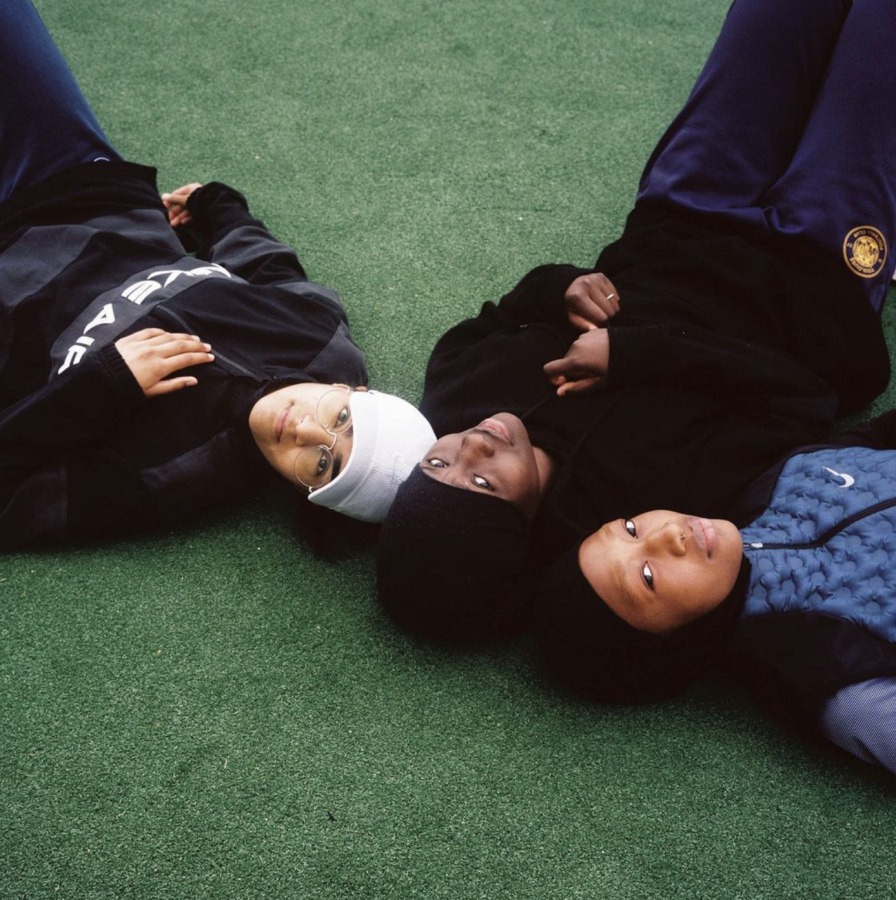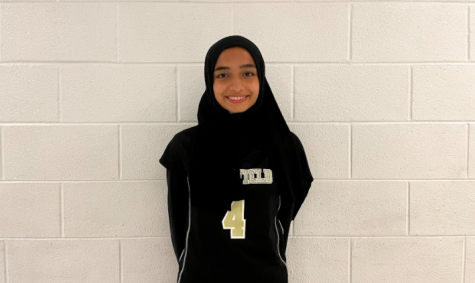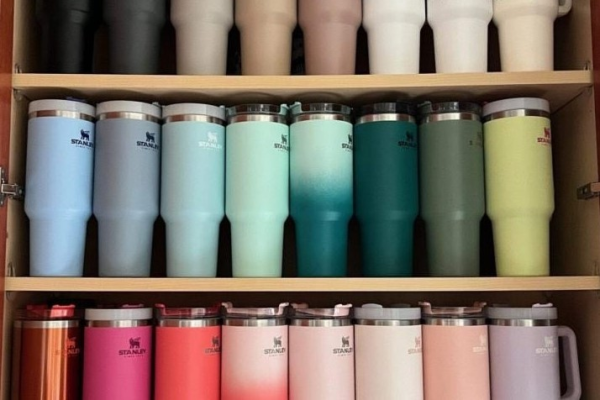WEARING THE HIJAB: A POETIC STRUGGLE FOR RELIGIOUS FREEDOM
As a group of young girls kick a soccer ball back and forth, they exchange jokes and playfully push each other around, trying to score for their team. Their sport serves as a passion and provides an intimate connection between the players. But there is also a prominent emblem that also connects all these young women, the religious veil worn by Muslim women: the hijab.
With the French government going back and forth with their bans, an organization called Les Hijabeuses formed as a collective defiance in May 2020. The tight-knit group participates in shared training sessions and motivates other hijabi athletes to become immersed in their sport. Les Hijabeuses channeled their energy into their game until July 2012, when an unwelcome but not entirely surprising change occurred. The French Football Federation (FFF), the governing body of football in France, banned female athletes from wearing the hijab in official club and international games. Although the Federation Internationale de Football Association (FIFA) had lifted its hijab ban in 2014, the FFF still went through with their decision.
Not only is the hijab banned within French Football, the burqa, a full covering except for the eyes, is also fully banned in France. If one were to go against France’s discriminatory laws and wear the burqa, they would be fined 150 euros, which in America is equivalent to $168.66. The French Parliament began their initial process of banning the burqa in 2009, shortly after President Nicolas Sarkozy claimed that religious face veils were “not welcome” in France. Just recently, the French senate banned anyone under the age of 18 from wearing the hijab in public. In addition, Sarkozy declared in 2009 during his State of the Nation Address that face coverings worn by some Muslims were not a “religious problem” but instead a problem of “liberty and women’s dignity.” France continues to prove their explicit anti-Islamic sentiment.
However, the hijab is not the entity that is oppressing women in France. The government itself is the source of oppression. The bans are not “freeing” these women from oppression; they are only imposing draconian restrictions on women who choose to cover themselves for their faith.
Hijab is an Arabic word meaning “barrier” or “partition.” It embodies principles that apply not just to women. Islam requires that men, too, abide by the virtues of modesty and humility. For Muslim women, the hijab is a source of strength and a reminder that they are more than just their exterior beauty. The misconceptions of Islam and the hijab have been spread through ignorance and misinformation in the past few decades. The hijab represents character and morality as prized attributes; yet, ignorant individuals still try to convince Muslim women that their beloved emblem is a source of oppression.
I started wearing hijab when I was fourteen years old. To me, and as with other Muslim women who wear one, the hijab is a form of devotion to God and a religious emblem that allows me to retain my modesty. But more than that, it gives me the freedom of choice and serves as a source of stability, knowing that my beliefs are my constants. Every day I am reminded of the immense ignorance that the Muslims around the world have to battle, especially Muslim women.
Since the day I began to wear the hijab I have encountered many stares and questions. “Aren’t you hot in that? I am asked disparigingly.
The ban of hijab in France affected me on many different levels. I would expect that playing sports would be a safe space for me, but even during field hockey I am flooded with questions and have observed that the respectful treatment I got before I wore a hijab is an object of the past. The freedom to pursue one’s endeavors with full capacity and to practice one’s religious beliefs is a basic human right that the athletes and women in France should not have to fight for.
Needless debates in France continue regarding what women can and cannot wear when just recently, President Macron’s government claimed that they aim to fight “Islamic extremism” and promote secularism within France. The French government fails to realize that terrorism doesn’t stem from a single group. White Americans commit acts of terrorism, too, as seen by the deadly Unite The Right rally in 2017 and the violent Capitol Hill attack on January 6. Additionally, Islam strictly condemns any acts of terrorism and violence, and the terrorists who associate themselves with Islam are defying the principles at the very center or our religion. Moreover, the ban stigmatizes the religions as a whole and takes human rights away from the individuals who actively condemn these actions. The resilient athletes of Les Hijabeuses did not take this ban easily, however.
Many players decided to protest, stating that their beliefs were more important than the so-called rules instilled by the FFF.
Sara Altarazi, 12, a hijabi student here at Westfield, expressed her disbelief over this ban: “I think it is unfair, and although the French government believes they are somehow ‘freeing’ these women, in reality, they are the ones oppressing them.”
Other hijabi students at Westfield have expressed similar opinions. Adithi Prasad, 12, opines, “It reinforces the stigmatism of Islam and Islamophobia in general.”
Many believe that our country has come far and eradicated all anti-Islamic sentiment but just recently, Ilhan Omar, a US Congress member from Minnesota, became the object of verbal assaults by Colorado Congress member Lauren Boebert. During a speech, Boebert crassly implied that riding an elevator with Omar might pose a deadly threat if the Muslim House member were wearing a backpack. Boebert’s outrageous remarks promote ugly stereotypes of Muslims as terrorists and wrongly draw connections between Islam and violence. If Boebert’s blatant discrimination can be tolerated in our own government, imagine the impact that it could have on citizens already prone to anti-Muslim prejudice. Bigotry does not just happen in foreign countries but takes place in front of our very own eyes, sometimes in the places we least expect.
Through their endeavors, Les Hijabeuses hope to tell the stories of their team and the many young girls who may feel targeted or misunderstood because of their beliefs. As the girls continue to practice every day with one another outside the official grounds, they are pressured with the burden of advocating for a right they should have had in the first place. Resistance will continue until this false idea of “freedom” instilled by the French government is realized and all women are able to protect their dignity and their choice. For now, these bright-eyed girls will continue their poetic battle.






